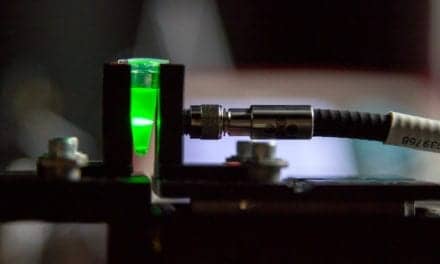Summary:
A newly FDA-cleared blood test that measures key Alzheimer’s disease biomarkers offers a less invasive, highly accurate method to diagnose the condition in symptomatic adults, marking a major advancement in accessible dementia diagnostics.
Takeaways:
- High Accuracy & Accessibility: The blood test, over 90% accurate, enables earlier and less invasive diagnosis compared to PET scans or spinal taps.
- Biomarker Breakthrough: It measures the ratio of pTau217 and β-amyloid 1-42 proteins, validated through major multi-institutional research.
- Personal & Research Impact: Co-developer Jeff Dage’s personal experience with dementia inspired the project, which now underpins broader Alzheimer’s research and clinical trial efforts at IU School of Medicine.
A first-of-its-kind blood test to detect amyloid plaques in the brain associated with Alzheimer’s disease recently received clearance from the U.S. Food and Drug Administration. An Indiana University School of Medicine researcher who helped lead the discovery and development of one of the biomarkers the test identifies hopes it will provide greater access and a more accurate diagnosis for patients.
The test received FDA clearance, which allows medical devices to be legally marketed in the U.S., on May 16. People 55 and older who exhibit signs and symptoms of Alzheimer’s disease can now receive the test, which is more than 90% accurate in diagnosing the disease, through a blood draw ordered by their physician.
Jeff Dage, PhD, senior research professor of neurology at the IU School of Medicine, discovered nearly a decade ago that phosphorylated tau — a protein in the brain that is associated with Alzheimer’s disease and gets filtered through the bloodstream—is a potential biomarker for Alzheimer’s disease. Together with collaborators from the Mayo Clinic, Lund University in Sweden, the University of San Francisco and Columbia University, Dage worked to demonstrate the performance of the blood test across a wide population of patients.
The teams published landmark papers, from 2018 to 2020, establishing they had identified a useful blood-based test. Their results showed the test was 96% accurate in determining whether a patient had pathological evidence of disease — on par with FDA-cleared cerebrospinal fluid testing or PET scans.
Blood Test Measures Ratio of Two Proteins
The blood test measures the ratio of two proteins that are hallmark characteristics of Alzheimer’s disease: phosphorylated tau (pTau217) and an amyloid protein (β-amyloid 1-42).
“This offers a less invasive, more accessible and scalable method to identify Alzheimer’s pathology early in the disease process,” Dage says. “It opens the door to more efficient diagnosis, earlier interventions and broader participation in clinical trials, which is essential for advancing treatment.”
According to the Alzheimer’s Association, more than 7 million people in the U.S. are living with Alzheimer’s disease, and that number is projected to rise to nearly 13 million in 2050.
For nearly 15 years, doctors detected amyloid plaques to diagnose Alzheimer’s disease using positron emission tomography (PET) brain scans, and, in 2022, the FDA cleared collecting cerebrospinal fluid samples through lumbar punctures to detect plaques. Those methods, however, are more invasive, more expensive and less accessible for all types of patients.
“Now we can obtain more specific and accurate diagnoses of tens of thousands of patients and improve our understanding of the risk or protective factors specifically associated with Alzheimer’s disease or non-Alzheimer’s disease dementias,” Dage says.
As the blood test is rolled out into the health care industry and doctors become more comfortable with its performance, Dage said it may provide earlier diagnoses for patients.
Diagnostic Has Personal Connection for Researcher
Dage, who joined the IU School of Medicine faculty in 2021 after more than 20 years as a scientist at Eli Lilly and Co., said developing an affordable and accessible blood test to aid in the diagnosis of Alzheimer’s disease is personal to him. He started his pursuit of a blood-based biomarker only a few years after walking through the steps of diagnosis as a caregiver for his mother, who passed away from complications of dementia in 2019.
“While the test is a major milestone, we must continue to refine it, expand its use and ensure it reaches those who need it most,” Dage says. “Above all, I’m grateful to the patients and families who have participated in our research — they are the true heroes of this story. I hope even more people will become excited about participating in research and even donate cerebrospinal fluid and blood so we can make the next discoveries.”
Biomarker research is an emerging facet of the IU School of Medicine’s comprehensive Alzheimer’s disease research program, which encompasses basic and translational research, drug discovery, testing new therapeutics and clinical research.
Dage’s expertise in biomarkers has supported multiple Alzheimer’s disease research programs at the medical school, such as the Indiana Alzheimer’s Disease Research Center, the Longitudinal Early Onset Alzheimer’s Disease Study, the Target Enablement to Accelerate Therapy Development for Alzheimer’s Disease center and the National Centralized Repository for Alzheimer’s Disease and Related Dementias.
Bruce Lamb, PhD, an IU Distinguished Professor and the executive director of the Stark Neurosciences Research Institute, said fluid biomarkers link the basic, translational and clinical research investigating Alzheimer’s disease and related dementias at the IU School of Medicine.
“This program has allowed us to identify and validate biomarkers of disease in animal models, identify unique biomarkers linked to therapeutic targets, characterize novel fluid biomarkers in patient populations and clinical trials and implement biomarkers into the community,” Lamb says.
Featured Image: Jeffrey Dage helped lead a project to get FDA clearance for a blood test that can diagnose Alzheimer’s disease. Image: Tim Yate, IU School of Medicine





